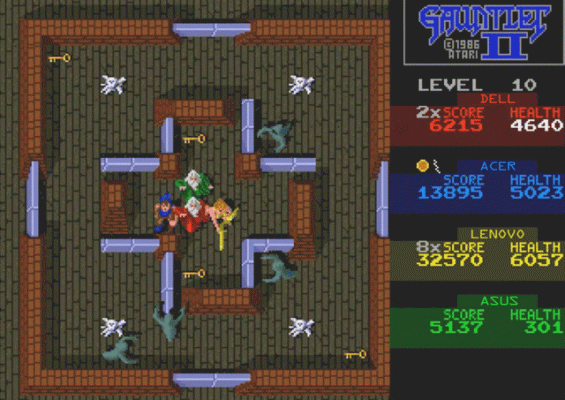As I write this, I’m sitting in my office. Around me, there are nine computers — seven of them run Windows. I have three slates, too — only one is an iPad. Welcome to the Post-PC world outside of San Francisco where Microsoft is still top dog and Apple is a niche, but admittedly, influential player.
We may be in the post-PC era, but the Windows PC is far from dead. Apple is growing rapidly but seemingly focused on high margin products and massive flying saucer headquarters rather than advancing society into the next age of computing. That’s Intel’s job. And they’re going to do with a MacBook clone.
Intel and major PC makers are toiling away at the next generation of PCs, that if marketed correctly, could usher in the next golden age of computers. Ultrabooks, as they are called, are essentially MacBook Air clones. They’re designed around a compact motherboard, CPU, and flash storage option. The first crop is likely to use Intel’s current CPUs, codenamed Sandy Bridge. The real fun comes when the 22nm Ivy Bridge models hit later this year for under a $1000.
HP essentially exited the consumer PC realm yesterday; they went the way of IBM and Sun. The consumer PC world is a brutal marketplace with companies constantly racing to the bottom with cheap, brand-damaging hardware. Profit margins are razor thin and the churn is nonstop with completely new product lines debuting every quarter. Only Apple, seemingly taking the high road, sticks to a slow, profit-friendly pace, introducing slight hardware bumps every couple of months and totally new computers every other year. But HP might have jumped ship a bit too soon.
Ultrabooks are exactly what the Windows PC world needs. The ultraportible notebooks drip with appeal and even with modest specs, the rock solid Windows 7 should run perfectly fine.
The first batch of these ultrabooks are reportedly hitting next month but, as per earlier reports, might command a slightly higher price than expected. Asus has the UX21, and then just today, Digitimes reports that Acer also has an upcoming Ultrabook scheduled for a September release.
It’s disingenuous to state that everyone wants an Apple computer; Windows’ massive market share tells a different story. But it’s hard to imagine anyone that wanders over to Best Buy’s Apple display not being impressed with the sleek hardware. For various reasons, though, the data states they often head back to the main notebook display and purchase something a bit more familiar and less expensive. This is what Intel is trying counter with ultrabooks by giving computer companies a dramatically smaller platform to build around.
Apple had the foresight to see that mobile computers needed a shot of excitement. The MacBook Air and iPad certainly invigorated its bottom line and a major reason why Apple dominated other players in the second quarter of 2011. Apple saw a 136% year-over-year growth in that segment and ended up shipping 13.5 million mobile devices. (notebooks and tablets) Yet, Windows/Android devices as a whole outsold OS X/iOS products two to one.
The Windows PC market is slightly stale. There hasn’t been a new paradigm in the personal computer space for some time. It’s like those Microsoft Store commercials where the lady says “I don’t need a new computer. My computer does everything I need it to do.” Windows notebooks today look physically just like the Windows notebooks from three years ago. Since most computing these days happen inside a web browser, it’s hard to tell consumers that they need a new, five pound notebook just to run Chrome. But what they really need, is a new, two pound ultraportable that gets three times the battery life.
Ultrabooks aren’t going to “save” Windows PCs; they don’t need saving. Ultrabooks will cause many consumers to shelve their bulky Windows notebook and jump into the wonderful world of the true portable computer and not the also-ran tech that they have been saddled with for the past half-decade.
